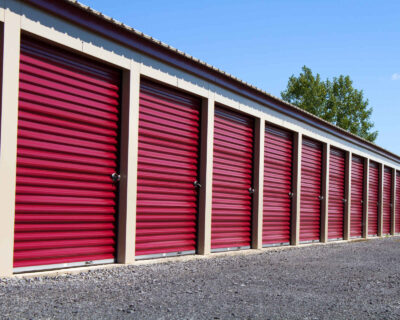Moving With a Newborn: Tips for a Smooth Transition
Transitioning to a new home is a major change, and when a newborn is part of the equation, the process becomes even more challenging. Our guide for moving with a newborn offers practical tips and strategies to help ensure a smooth relocation with your tiny addition. From packing essentials to maintaining routines, we will provide you with insights to alleviate stress, ensuring your baby’s comfort during this significant life event.

When you’re moving with an infant, you’ll need to prepare for the move and plan everything in detail. Time everything appropriately and create a detailed relocation checklist and new apartment checklist. Set aside time to research the new location. Consider the safety and comfort of your baby – think of baby-proofing the apartment and ensuring a safe sleep environment. You’ll have to pack efficiently for the relocation and arrange travel to your new home. Lastly, don’t forget to hire long-distance movers to assist you with shipping.
Moving With a Newborn Requires Detailed Planning and Preparation
The prospect of relocating to a new state can seem overwhelming, especially with a newborn. The key to a successful relocation with a baby is careful planning and thorough preparation. A well-laid-out plan helps alleviate relocation stress and ensures the baby’s needs are adequately addressed. This includes organizing the packing of essential items, arranging logistics, and creating a comfortable space for the baby at the new location.
Timing the Move Appropriately
The timing of your relocation can greatly impact your baby. Consider your baby’s feeding and sleeping patterns, as well as their general comfort and well-being. Try to avoid relocating to a new city during major developmental milestones or periods of change, like when starting to grow teeth or adjusting to solids. Maintaining familiar routines can provide a sense of security and normalcy during a move. Try to keep sleep and feeding schedules consistent even amidst the chaos of packing and relocating efficiently.
Creating a Comprehensive Moving Checklist
Create a to-do list to keep track of the various tasks associated with relocating. Remember to include items such as arranging for long-distance moving services, wrapping your baby’s essentials, and setting up the baby’s room at the new place. Remember to factor in extra time to handle any unforeseen circumstances and avoid last-minute tasks. Having a buffer can prevent last-minute panic and ensure that your baby’s needs are not overlooked amidst any disruptions.
Researching the New Location
Research local healthcare facilities and find a new pediatrician before you relocate. Having these details sorted out will provide peace of mind in case of any health emergencies. Explore your new neighborhood for family-friendly amenities. Parks, play areas, libraries, and baby-friendly cafes can offer wonderful opportunities for you and your newborn to relax and connect with your new community.

Consider the Safety and Comfort of Your Baby
When relocating to another state with a newborn, safety and comfort should be paramount. Babies are sensitive to their surroundings and susceptible to potential hazards in the home. Ensuring your new home is safe, welcoming, and comfortable is vital to a smooth transition. Make your baby’s well-being the priority in all decision-making processes, from choosing which apartment to rent to setting up the nursery.
Baby-Proofing the New Home
Before you move into a new home, assess it for potential hazards. Secure furniture to prevent tipping, cover electrical outlets, and remove any choking hazards. Consider hiring a professional if you’re uncertain about how to effectively baby-proof. Install safety gates at staircases and doors leading to potentially dangerous areas. Consider safety locks for cabinets and drawers, especially those within your baby’s reach and containing harmful substances.
Maintaining a Familiar and Comfortable Environment
To provide a sense of familiarity, try to replicate your baby’s previous nursery setup in the new home. Maintaining similar room layouts, sounds, and even smells can help ease the baby’s transition. Prioritize unpacking after the relocation, and be sure to unpack your newborn’s essentials first. Having immediate access to items like diapers, formula, clothing, and favorite toys will help ensure your baby’s comfort and help you maintain routines during the transition.
Ensuring a Safe Sleep Environment
Designate a separate and safe sleep environment for your newborn. Ensure it’s free of loose bedding, soft toys, and crib bumpers. Use a firm mattress with a fitted sheet. Stick to the recommended safe sleep practices, such as placing your baby on their back to sleep and keeping the sleeping area at a comfortable temperature. This will provide your newborn with the safest and most comfortable sleep environment during this transition.

Pack and Organize Baby Essentials
Relocating with a newborn requires special attention to the wrapping and organizing of baby essentials. It’s crucial to ensure the baby’s needs are met throughout the relocation process and that you have access to essential items at all times.
Creating a Baby Essentials Box
Before you start packing for the move, gather all the baby essentials that you will need for a few days. This should include items such as diapers, wipes, bottles, formula or breast milk supplies, pacifiers, baby food (if required), and a few changes of clothes. Consider adding in a favorite toy or comfort item to help soothe your baby during this transition. Research some of the common packing tips to get an idea of how best to wrap up all the belongings.
The baby’s relocation essentials box should be kept within easy reach throughout the move. Whether you’re traveling by car or shipping things in a relocation truck, ensure this box is the last to be loaded and the first to be unloaded. This will ensure that no matter what, your baby’s immediate needs can be met promptly.
Storage Service
Knowing what kind of surprises cross country move may hold, we offer 30 day free storage for belongings at the origin state.
Read moreAuto-Transport
If your first concern is having your vehicle transported safely and efficiently, enclose shipping is the way to go.
Read moreMoving Insurance
Flat Price Moving and Auto Transport Company offers moving insurance to cover potential damages
Read moreOrganizing Baby Items for Easy Access
Start by sorting the boxes of your baby’s items into categories, such as clothing, bedding, and toys. Once sorted, clearly label each box or bag. This can save time when unpacking and setting up the baby’s space in the new home. Consider using clear storage bins or drawers for your baby’s belongings. These allow you to quickly identify the contents without having to open each one. For clothing, consider organizing items by size and season to quickly locate appropriate attire.
Remember, babies grow quickly, and their needs change rapidly. As you pack, this might be a good time to sort out items that your baby has outgrown or no longer uses. Selling, storing, or donating unwanted items can reduce the amount of stuff you have to move, making the whole process more manageable.

Don’t Forget to Organize Traveling With a Newborn
The journey from your old home to your new one can be a challenge with a newborn. The unpredictability of traffic, potential delays, and the disruption to your baby’s routines can all contribute to a stressful travel experience. However, with proper organization and planning, you can ensure your baby’s needs are met and that the journey is as smooth as possible.
Plan for the Journey
Long journeys can be hard on a newborn. Plan your route to include regular stops for feeding, diaper changes, and some stretching or cuddling. Try to align these breaks with your baby’s usual feeding and changing times to maintain a sense of routine. Pack a separate bag with everything you’ll need for the journey. This includes diapers, wipes, a changing pad, feeding supplies, extra clothing, and a comfort item like a favorite toy or blanket. Keep this bag within easy reach for quick access during your travel breaks.
Ensure a Safe and Comfortable Travel Environment
It’s vital to have a suitable car seat for your newborn and to ensure it’s properly installed. If you don’t know how to do it properly, many local safety organizations offer free car seat installation checks. Keep the car at a comfortable temperature and ensure there’s adequate ventilation. Overheating can be dangerous for newborns, so it’s better to layer their clothing and adjust as necessary. Avoid direct sunlight on your baby, and use sun shades on the car windows if needed.

Hire Cross-Country Movers From a Moving and Auto Transport Company to Make the Move Easy
Hiring movers from a reliable cross-country moving and car shipping company can significantly streamline the process, especially when you’re navigating the challenge with a newborn. Professional movers bring expertise, equipment, and experience that can make your move smoother and less stressful. Here are some key benefits of relocating with their help:
- Efficiency and speed – Professional movers have the skills and techniques to pack, load, transport, and unload your belongings swiftly and safely. This efficiency can significantly reduce the time you spend on the relocation process.
- Safety and care – When it comes to handling valuable and fragile items, professional movers have the proper training to ensure their safe transportation. They also offer special packing services, reducing the risk of damage or personal injury.
- Convenient relocating – Relocating can be stressful and physically demanding. By hiring movers, you can focus more on caring for your newborn and less on the logistics of shipping belongings.
- Insurance and liability – Professional relocation companies provide insurance options for your belongings during the relocation. This means if items get damaged or lost in transit, the company is liable, providing you with added peace of mind.
- Cost-effective relocation – While hiring movers may seem expensive upfront, consider the potential cost of doing it yourself. When you factor in the time, effort, possible damage, and cost of renting equipment, hiring professionals can be a cost-effective solution.
- Resources and equipment – Professional movers come with the right equipment to handle your belongings properly, from large items to delicate ones. You won’t have to worry about sourcing supplies and equipment yourself.
- Reduced stress – Ultimately, hiring a long-distance moving company can drastically decrease the stress associated with relocating. Knowing that trained professionals are handling your relocation lets you concentrate on settling your newborn into a new home.
Reach Out to Flat Price Auto Transport and Moving, and Your Relocation Will Be Easy
Flat Price Auto Transport and Moving is a renowned service provider in the relocation industry, offering expert solutions to make your relocation easier. With a track record of successful relocations, we are fully equipped to handle all your moving needs, including the complexities of relocating with a newborn.
We provide both relocation and auto transport services, which can be invaluable during a cross-country relocation. Our team is composed of skilled professionals who will ensure the safe and efficient packing and handling of your belongings. With a customer-oriented approach, we prioritize your needs and preferences, making your comfort and convenience our primary goal. Contact us to get a free quote, and let’s get started on your relocation today!
FAQ
How Far in Advance Should I Start Preparing for the Move With a Newborn?
Starting preparations as early as possible is advisable when moving with a newborn. Ideally, you should begin about two to three months in advance. This allows ample time to arrange for movers, pack belongings, baby-proof the new home, and address any unexpected issues that may arise.
Are There Any Specific Safety Precautions I Should Take During the Move?
Safety should be paramount. Ensure that your newborn’s essentials are easily accessible and their sleeping and feeding schedules are minimally disrupted. Baby-proof all the areas in the new home before moving in by securing furniture, covering electrical outlets, and removing potential hazards. Always use a suitable car seat when traveling.
How Can I Make the New Home Feel Familiar and Comfortable for My Newborn?
To make your new home feel familiar, replicate your baby’s previous nursery setup. Maintain a similar room layout, lighting, and even smells. Unpack baby items first to establish a sense of routine and familiarity.
What Are Some Tips for Traveling Long Distances With a Newborn?
Plan your route to include regular stops for feeding, changing, and cuddling. Keep an easily accessible bag with essentials like diapers, wipes, and feeding supplies. Ensure the car is at a comfortable temperature, and use appropriate car seats.
How Can I Manage Stress and Emotions During the Move?
Keeping yourself organized and planning ahead can help manage stress. Don’t hesitate to ask for help from friends, family, or professionals. Allow yourself breaks, maintain healthy eating and sleeping habits, and practice stress-reducing activities like deep breathing or meditation.
Are There Any Resources or Support Groups for Parents Moving With a Newborn?
Many online forums and local parenting groups offer support and advice for relocating with a newborn. Websites like BabyCenter and The Bump provide forums where parents can share experiences and relocation tips.
Should I Pack Any Specific Items or Toys to Keep My Newborn Entertained During the Move?
Bring along a few of your newborn’s favorite toys or comfort items. These can provide familiarity and distraction during the relocation. However, remember that newborns mainly need feeding, changing, and plenty of rest.
How Can I Help My Newborn Adjust to the New Environment After the Move?
Stick to regular routines as closely as possible to help your newborn adjust. Spend time cuddling and playing with your baby in the new space. If your baby seems particularly unsettled, consult with a pediatrician for further guidance. Remember, each baby is unique and may take a different amount of time to adjust.









